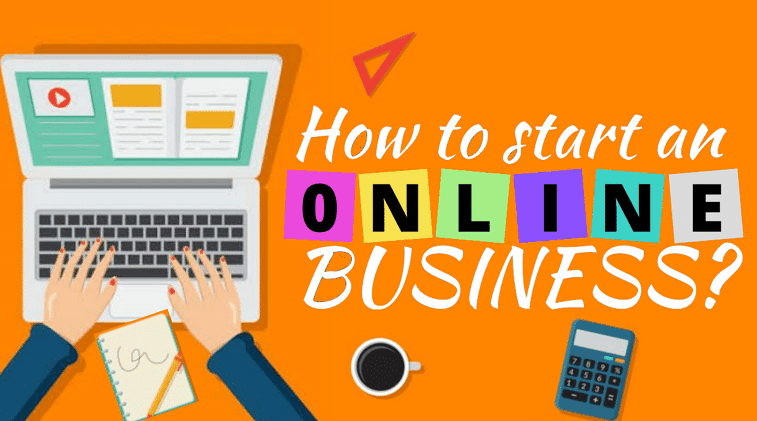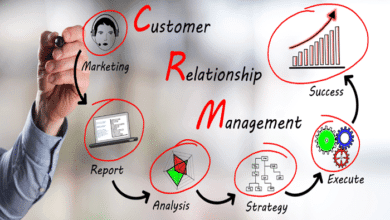How to Start Online Business: A Complete Guide for Beginners in 2025

Starting an online business has become more accessible than ever. With the digital economy booming, more people are exploring how to turn their ideas into profitable ventures on the internet. Whether you want to sell products, offer services, or start a content-based platform, there is an opportunity for everyone.
This ultimate guide explains how to start online business from scratch — including market research, legal steps, tools, platforms, monetization methods, and real-life strategies to thrive in 2025.
Read More: camille monfort
Why Start an Online Business?
Starting an online business provides numerous advantages over traditional brick-and-mortar models:
Low Startup Costs: Less money is required for inventory, space, and utilities.
Flexibility: Work from anywhere at your preferred time.
Scalability: Reach a global audience with the right tools.
Passive Income Potential: Many online models allow automation and recurring earnings.
According to Statista, the global e-commerce market is projected to reach $7.4 trillion by 2025, creating immense opportunities for digital entrepreneurs.
Step-by-Step Guide: How to Start Online Business in 2025
Here’s a simplified roadmap:
| Step | Description | Tools/Examples |
|---|---|---|
| 1 | Identify Your Niche | Google Trends, Keyword Planner |
| 2 | Conduct Market Research | Statista, Facebook Groups, Quora |
| 3 | Choose Business Model | E-commerce, Dropshipping, Affiliate, SaaS |
| 4 | Create a Business Plan | Business Model Canvas, Lean Canvas |
| 5 | Register Domain & Hosting | GoDaddy, Namecheap, Bluehost |
| 6 | Build a Website or Storefront | Shopify, WordPress, Wix |
| 7 | Set Up Payment Gateway | Razorpay, Stripe, PayPal |
| 8 | Launch and Market Your Business | SEO, Social Media, Email, Paid Ads |
| 9 | Track, Optimize, and Scale | Google Analytics, Hotjar, CRM Tools |
Identify a Profitable Niche
The foundation of a successful online business is a profitable and passion-driven niche. Ask yourself:
What topics do I enjoy?
What problems can I solve?
Are people searching for this?
Examples of Evergreen Niches:
Health and Fitness
Personal Finance
Education
Fashion & Beauty
Technology & Gadgets
Online Coaching or Courses
A good niche will be specific, audience-focused, and in-demand.
Conduct Market Research
Market research helps validate your business idea. You can:
Search for top questions on Quora and Reddit
Analyze trends using Google Trends
Study competitors’ strengths and weaknesses
Join Facebook groups and forums in your niche
Key Data Points:
Target audience demographics
Buying behavior
Pain points and needs
Market size and competition
Tip: Use free tools like Ubersuggest, Answer the Public, or SEMrush for keyword and competitor insights.
Choose a Business Model
Choosing the right business model is critical. Below are the most popular ones:
| Business Model | Description | Ideal For |
|---|---|---|
| E-commerce | Selling physical or digital products | Product creators or resellers |
| Dropshipping | Selling products without inventory | Low-budget startups |
| Affiliate Marketing | Promoting others’ products for commissions | Bloggers, influencers |
| Coaching/Consulting | Offering expertise in exchange for payment | Professionals and educators |
| Online Courses | Teaching skills via videos or tutorials | Teachers, creators |
| Freelance Services | Selling skills like writing, design, coding | Solo professionals |
| SaaS | Providing subscription-based software | Tech entrepreneurs |
Create a Business Plan
A business plan doesn’t have to be lengthy. Keep it lean, focused, and goal-driven. Include:
Executive Summary: Short overview of your business
Business Model: How you’ll make money
Target Audience: Who will buy your service or product?
Marketing Plan: Promotion strategies
Budget/Forecasting: Expected expenses and revenue
Tools like Canva, Trello, and Notion can be used for planning visually.
Register Domain Name & Hosting
Choose a domain name that’s:
Short and memorable
Related to your niche
Easy to spell
Popular domain platforms:
GoDaddy
Namecheap
Hostinger
Hosting Services:
Bluehost (great for WordPress)
SiteGround
HostGator
Shopify (for e-commerce)
Build Your Website or Store
Your website is your storefront. Depending on your model, choose the appropriate platform:
| Purpose | Recommended Platform |
|---|---|
| Blog/Content | WordPress, Ghost |
| Online Store | Shopify, WooCommerce |
| Landing Page | Wix, Webflow, Carrd |
| Portfolio | Behance, Squarespace |
Must-have features:
Mobile responsiveness
Clear navigation
Fast loading speed
Contact page
Secure payment gateway (SSL)
For beginners, using website builders like Wix or Shopify is highly recommended.
Set Up Payment Gateways
To accept payments online, integrate secure gateways. Options include:
Stripe
PayPal
Razorpay (India)
Payoneer (For international freelancers)
Ensure:
SSL certification is active
Your checkout process is simple
Customer trust signals (badges, reviews) are visible
Launch and Promote Your Online Business
Once everything is ready, it’s time to launch and bring in traffic.
Marketing Channels:
Search Engine Optimization (SEO) – Organic traffic from Google
Social Media Marketing – Build community & brand awareness
Email Marketing – Nurture leads with newsletters and automation
Paid Advertising – Use Google Ads, Facebook Ads for fast results
Influencer Marketing – Partner with niche-specific influencers
Tip: Use tools like Mailchimp, ConvertKit, or Sendinblue for email marketing.
Track Performance and Scale
Once live, measure your website’s and campaign’s performance. Use:
Google Analytics – User behavior tracking
Hotjar – Heatmaps and visitor recordings
Facebook Pixel – For ad tracking
KPIs to Monitor:
Conversion rate
Website bounce rate
Cost per acquisition (CPA)
Customer lifetime value (CLV)
As your business grows, consider outsourcing or hiring remote teams through platforms like Upwork or Fiverr.
Top Tools to Start Online Business
| Tool Type | Recommended Tools |
|---|---|
| Website Builder | WordPress, Shopify, Wix |
| SEO Tools | Ahrefs, SEMrush, Ubersuggest |
| Email Marketing | Mailchimp, ConvertKit |
| CRM | HubSpot, Zoho CRM |
| Graphic Design | Canva, Adobe Express |
| Social Scheduling | Buffer, Hootsuite |
| Analytics | Google Analytics, Hotjar |
Pros and Cons of Starting an Online Business
| Pros | Cons |
|---|---|
| Low startup cost | High competition |
| Global customer base | Requires self-discipline |
| Flexible work hours | Technical skills may be needed |
| Scalable income | Slow start for some models |
| Automation opportunities | Risk of online frauds |
Frequently Asked Questions (FAQ)
Q1: How much does it cost to start an online business?
Starting costs vary. A basic setup (domain, hosting, tools) may cost $100–$500 initially. However, platforms like Shopify or WordPress offer low-cost entry options.
Q2: Can I start an online business without inventory?
Yes! Business models like dropshipping, affiliate marketing, and digital product sales do not require inventory.
Q3: Do I need to register my business legally?
Yes, it’s advisable. In India, you can register under:
Sole Proprietorship
LLP (Limited Liability Partnership)
Private Limited Company
A GST number is also required if your revenue crosses the threshold.
Q4: Which online business is most profitable?
Some of the most profitable online businesses in 2025 include:
SaaS
Affiliate Marketing
Online Courses
E-commerce
Digital Marketing Agencies
Q5: Can I start an online business part-time?
Absolutely! Many online entrepreneurs begin part-time. It’s a smart way to test ideas without leaving your full-time job.
Final Tips for Success
Start small, grow big: Launch with MVP (minimum viable product)
Focus on one platform initially: Master one channel before expanding
Automate early: Use tools for emails, scheduling, analytics
Keep learning: Digital trends change fast — stay updated
Remember, consistency beats perfection. Starting an online business may take time, but with persistence and the right strategy, success will follow.
Conclusion: Ready to Start Your Online Business?
The future is online. Whether you’re an entrepreneur, freelancer, or someone seeking financial freedom, learning how to start online business will equip you with tools to thrive in today’s digital economy.
With the right planning, platforms, and promotional strategies, building a profitable online business in 2025 is more achievable than ever before.





